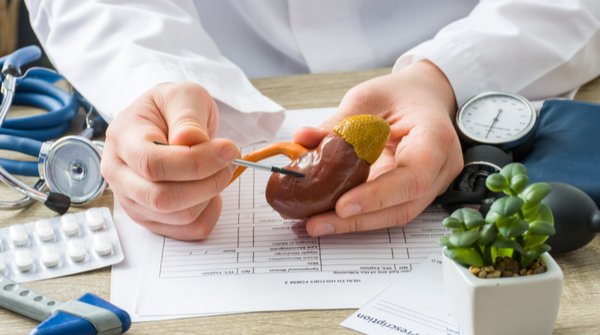Diabetes care and diabetes management extend beyond regular sugar level monitoring. Fluctuating blood sugar levels cause irreversible damage to your kidneys in the long run. Let’s learn about the connection between kidney damage and diabetes.
Our kidneys are made up of thousands of tiny blood vessels whose main function is to filter waste from our blood. Diabetes can cause damage to the blood vessels, thereby affecting this filtering process and causing kidney diseases. In worst-case scenarios, it can even lead to kidney failure.
Reasons of Kidney Damage
High blood glucose and people with diabetes for a long time may experience kidney damage. The tiny blood vessels in the kidney get damaged, which impairs the kidney’s basic function of filtering out the toxins from your blood.
Additionally, high blood pressure or poorly controlled hypertension can worsen the situation drastically as it causes damage to blood vessels. Familial history of Diabetic Nephropathy increases the risk of kidney diseases.
When kidney disease starts to affect your body, in response, your body will retain more water and salt than it should, which can result in weight gain and ankle swelling. You may have protein in your urine. Also, waste materials will build up in your blood.

Symptoms of Kidney Damage
Early-stage detection is often impossible as no symptoms develop. However, that said, a person with kidney disease is likely to experience these symptoms of chronic kidney disease –
- Frequent urination
- Swelling of the legs and puffiness around the eyes
- High blood pressure
- Fatigue and weakness
- Loss of appetite
- Nausea and vomiting
- Itching and easy bruising
- Shortness of breath
- Headaches and sleep problems
- Restless legs syndrome
- Chest pain
- Bleeding
- Bone pain; and
- Decreased interest in sex and erectile dysfunction
How Do I Manage and Prevent Kidney Problems?
In order to prevent kidney damage, you need to control blood sugar levels. Be strict with your medication, diabetes diet and exercise routine. Keep monitoring sugar levels regularly without fail, with the help of a glucometer.
If you are already suffering from kidney diseases, make sure you seek medical attention to treat any lipid abnormalities (treat dyslipidemia) and restrict protein intake in your food. Ask your doctor which drugs are bad for your kidneys (nephrotoxic) and make sure you avoid them.
Regular urine and blood tests to measure creatinine levels are important for the early detection of kidney damage.
How Can BeatO Help?
BeatO Smartphone Glucometer is a handy device that is not only easy to use but also gives accurate readings and connects you to your personalized diabetes educator instantly. This allows you to develop your personalized annual test schedule. Additionally, the BeatO App lets you keep a daily check of your sugar levels as well as count your protein intake in food, which is important for people with kidney problems.





